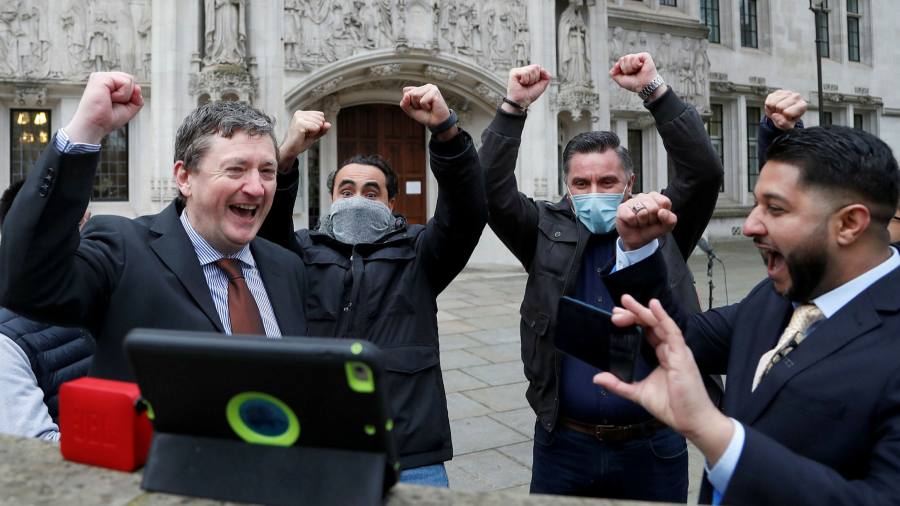[ad_1]
Move fast and break things, runs a Silicon Valley aphorism. In Uber’s case, one of those things turned out to be British employment law. The UK Supreme Court on Friday dismissed an appeal by the taxi booking app against a lower court’s judgment that its drivers should be classified as “workers†rather than self-employed. That grants them the entitlement to holiday pay, sick pay and the minimum wage. The decision strikes not only at the heart of the company’s business model but the gig economy generally.
This is by no means the first case that Uber has lost. In California, courts similarly backed the idea that drivers using the service ought to be classed as employed by the company rather than independent contractors — though this was weakened by a referendum. In the UK, the question rested on the degree of control the company enjoys over drivers. Lord George Legatt, who wrote the Supreme Court’s unanimous ruling, said “the question . . . is not whether the system of control operated by Uber is in its commercial interests, but whether it places drivers in a position of subordination to Uber. It plainly does.â€
The judgment, however, rests on specific facts about the relationship between Uber and its employees. The court asserted that Uber set maximum fares, drivers had no say in their contracts and the application imposed penalties if drivers cancelled too many requests. This level of control meant drivers could not increase their income using “professional or entrepreneurial skillâ€, the court concluded, meaning they worked for Uber and not themselves.
It remains to be seen how Uber will react and whether it can tweak the platform so that it reduces this control, allowing drivers to be genuinely self-employed. If it does so, however, it will mean the taxi booking app will be less able to guarantee a uniform service. The alternative would mean raising prices to cover the additional costs associated with conforming to the law. Either way, the company’s business model in the UK — London is one of its few profitable markets worldwide — will have to change.
The principles behind the judgment should also worry other gig economy businesses and their investors. Start-ups that want to control their workers and guarantee a particular kind of service will in exchange have to provide them with sick pay, holiday pay and the minimum wage. That will raise costs and reduce returns. The days of profiting from ambiguity in UK employment law could come to an end.Â
Ultimately, however, the judgment is an indictment not of UK employment law but its enforcement. It took five years for the drivers to get justice. In addition to the harm done to workers, potential competitors to Uber who played by the rules may have struggled in the interim — penalised by the unfair competition. The impact of the decision may be piecemeal too: workers at other companies will have to bring their own cases and cite the decision as precedent. In the short term, many will not enjoy all their legal rights.
Britain needs to take a wider look at how it regulates the labour market as novel forms of work proliferate — delivery drivers have been one of the few professions to see their ranks swell during the pandemic. It also needs to take a more proactive approach to enforcing the laws that exist; every court has agreed with the Supreme Court’s interpretation but no agency proactively sought to enforce it. The government’s recently created position of director of labour market enforcement is soon to be vacant. The government must move fast to fill it.
[ad_2]
Source link






